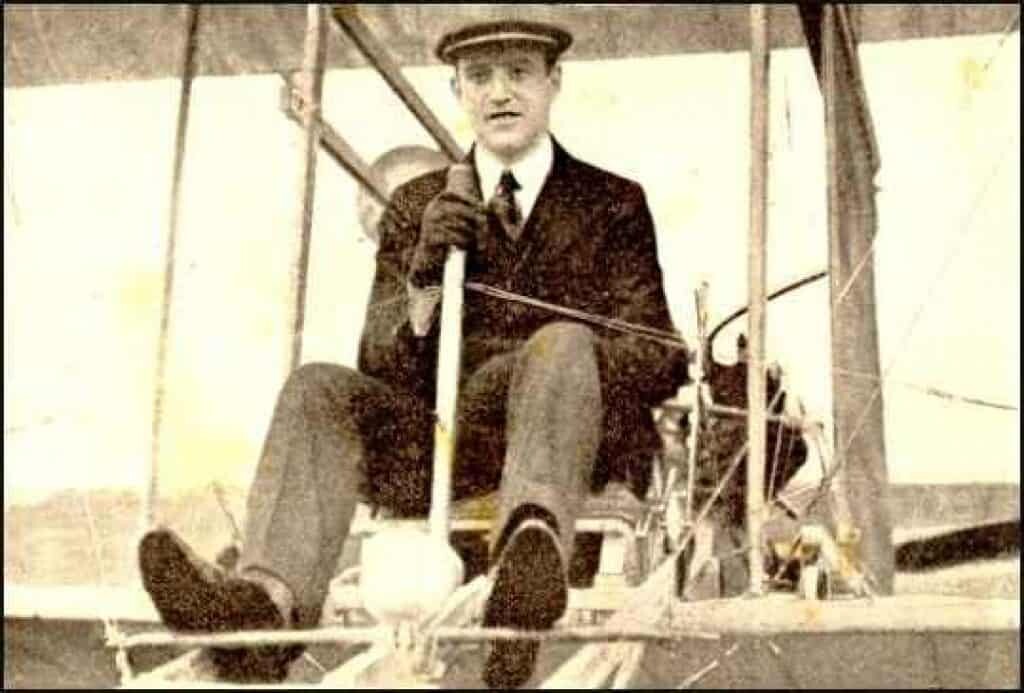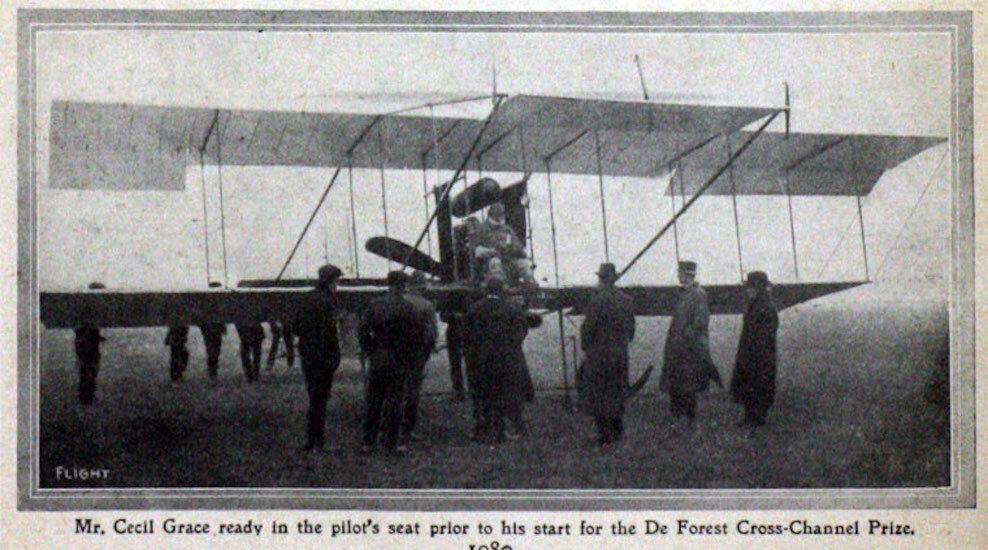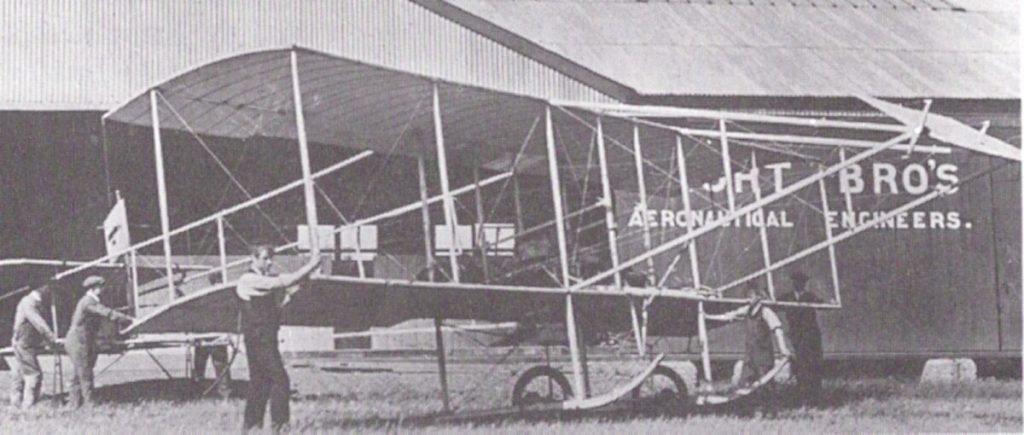Arguably the earliest instance of a plane whose pilot (and the plane itself) went missing is the 1910 disappearance of an aviator named Cecil Grace. He was an adventurous man who came from a well-to-do family. His uncle had been the mayor of New York from 1881 to 1882 and 1885 to 1886.

Cecil Grace. Image: From the collection of Jean-Pierre Lauwers
The Dawn of Flight
It should be noted that 1910 was only seven years since the Wright Brothers landmark flight at Kitty Hawk, North Carolina. In those few short years, air flight had grown by leaps and bounds and resulted in motor-driven planes and fame for early aviators. Soon there was money to be made from flying.
Maurice de Forest’s Baron de Forest Aviation Prize
An early prize was Maurice de Forest’s Baron de Forest Prize of £4,000 to the first Englishman who could fly across the English Channel in an English-built airplane and land as far into Europe as possible. The amount was later doubled by a French airman.
Related: Five Aerial Disappearances Shrouded in Mystery
That amount of money was nearly a fortune in the first decade of the 20th century. Grace probably didn’t need the money. However, so much fame was riding on the prize that many amateur English pilots attempted to win the prize.
On December 22, 1910, Grace managed to fly from Swingate Downs near Dover to Calais in France. He wanted to go further into Europe to claim the prize, so he decided to fly back to England and try again.
Cecil Grace and His Doomed Final Flight
Cecil Grace left France early in the afternoon and headed west in a journey that should take about 30-40 minutes. Interestingly, a passenger plane today can cross the 21-mile Channel in almost a matter of seconds.

Cecil Grace prepares for his doomed flight in an effort to win the Baron de Forest Prize. December 22, 1910. Photo Credit: Flight.
He did make headway. A coastguard ship, the North Goodwin Lightship, spotted an airplane approximately six miles out at sea near the coast of Kent, England. It most likely was Grace’s.
But when Grace did not land back in England by 3:30, fellow pilots at the destination airfield began to worry. The natural conclusions were that he had either crashed into the Channel or, due to bad weather, turned around and headed back to France.
Cecil Mysteriously Vanishes
The full mystery continued until January 6, 1911. That is when a pair of aviator goggles and a man’s cap washed ashore on a beach in Belgium. Many weeks later, in mid-March, a body was found near the same beach that might have been Grace’s corpse. But it could not be positively identified as Grace due to advanced decomposition. Later that same month Grace was officially declared dead, but doubts lingered.

Cecil Grace flew this Short S.27 aircraft the day he vanished.
He was later heralded in both England and France. A stained glass window in Eastchurch’s All Saints’s Church and a monument at Calais contain mentions of Grace in their memorials. And he was awarded the British Royal Aero Club’s Gold Medal after his death.
Declared Dead
Did he crash somewhere into the cold waters of the Channel? The body found in March of 1911 was too far from Grace’s last sighting near Kent. It may have been that of an earlier man who went overboard in a boat or a tragic suicide.
In that same month, Cecil Grace was formally declared deceased. As of today, his body and aircraft have yet to be found.